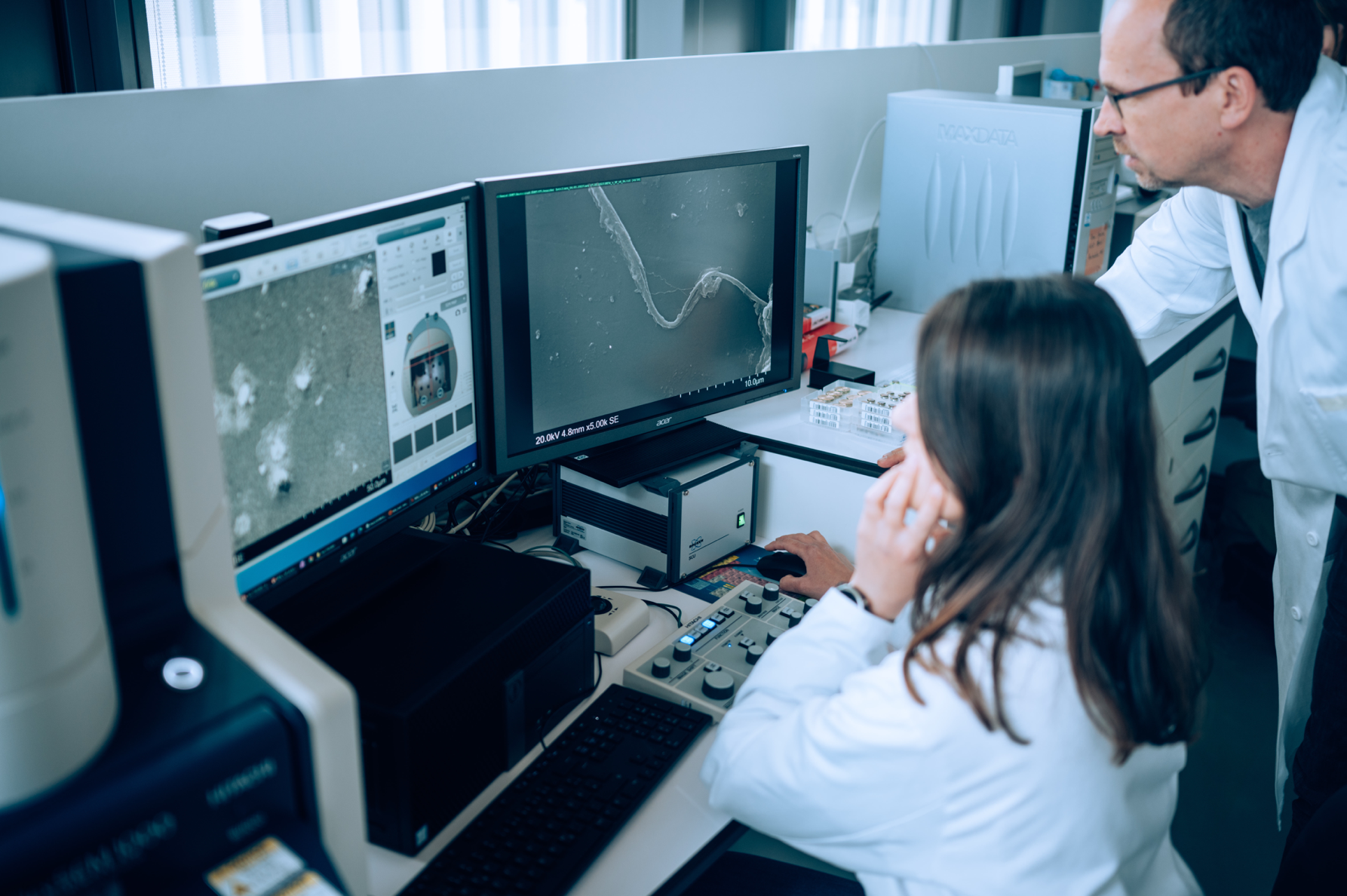Antimicrobial peptides in human blood support the conventional humoral and cellular immune system by destabilizing bacterial membranes or inactivating endotoxins derived from bacteria. The latter effect is exerted by heparin-binding components in plasma that act as endotoxin neutralizing compounds (ENCs). The project “Heparin-binding Antimicrobial Proteins in Human Plasma” investigates the endotoxin inactivating and antimicrobial properties of ENCs. For this research, the University for Continuing Education Krems is cooperating with the Karl Landsteiner University of Health Sciences.
Antimicrobial resistance has become a major challenge due to the spread of new multi‑drug‑resistant microorganisms that cause life‑threatening infections. To tackle this global challenge there is a need for new antimicrobial drugs, and a number of studies have focused on antimicrobial peptides (AMPs) as a new generation of drugs. AMPs, also known as host defense peptides, are important components of the innate immune system of multicellular organisms. They target invading pathogens by combining antimicrobial and immunomodulatory properties. One focus area of the study is the isolation of these plasma components and the characterization of their antibiotic effect on different bacterial strains.
Understanding pathophysiological mechanisms
The GFF NÖ-funded project (Life Science Call 2020) seeks to contribute to a better understanding of the basic pathophysiological mechanisms of bacterial infections. Its results will further our understanding of the heterogeneity of sepsis patients and support the development of targeted treatment approaches. In this way, it will advance novel approaches to lowering mortality from sepsis. The project results can support the development of new diagnostic tools, in particular the development of an optimized method for endotoxin detection with a high recovery in whole blood and protein‑containing media.
Dissertation focusing on antimicrobial peptides
The project forms the framework for a PhD project entitled “Heparin‑binding Antimicrobial Peptides”. The aim of this project within the PhD-program “Regenerative Medicine” is to investigate endotoxin‑neutralizing mechanisms in human whole blood. One focus is the influence of the anticoagulation on the effect of endotoxins and on endotoxin‑neutralizing factors in whole blood. Furthermore, AMPs are isolated from human whole blood and their influence on the activity of endotoxins will be investigated.
Contact
Assoz. Prof. Dr. Jens Hartmann, University for Continuing Education Krems, project lead
DI Dr. Claudia Kolm Bakk, Karl Landsteiner University of Health Sciences
